 Probate is a term that most people have heard at one time or another but may not know what the term means. This common legal process is utilized by courts all over the country to administer a person’s estate when they die. Understanding the probate process in advance of being subjected to it will make planning for estate administration an easier task. Here are some fundamental aspects of the probate process in Michigan:
Probate is a term that most people have heard at one time or another but may not know what the term means. This common legal process is utilized by courts all over the country to administer a person’s estate when they die. Understanding the probate process in advance of being subjected to it will make planning for estate administration an easier task. Here are some fundamental aspects of the probate process in Michigan:
Probate is the process by which an individual’s estate is distributed and settled after they die. This is true when a person dies with a will or intestate, meaning without a will. If there is a valid will, the court will oversee the wishes of the deceased while ensuring that their debts are paid from the estate. If there is not a will, the court will see that the estate is distributed to heirs according to the law which specifies which heirs will inherit under these circumstances. The court will also ensure the applicable debts are paid. Depending on the value of the estate, probate may not be necessary. For instance, if the estate value is very low or can only cover a few expenses and no real estate is involved, assets can be claimed by affidavit or other heirs and probate may not be required.
The process usually begins when the personal representative named in the will notifies the court of the will or, if there is no will, the court appoints a representative. The representative can file a petition for a will to be admitted. The representative will then be issued a “Letter of Authority for Personal Representative” which allows the representative the authority to begin administering the estate. This process involves the representative taking an inventory and completing a comprehensive list of all of the decedent’s assets after which the decedent’s creditors can file claims for payment of debt.
The court will consider the claims and then either reject or approve them. Once approved the creditor must be paid what it owed to them. After that, the estate must cover court and administration-related fees. Then, the remainder of the estate can be allocated as dictated in the will or according to laws for those who die intestate. After the distribution of the estate is complete, the personal representative will prepare a written report for the court and the court can close the case.
Probate can take several months or even years depending on the circumstances. For instance, if a relative wishes to contest a will this claim can tie the will and the administration of the estate up for a significant period of time. The more contentious the parties, the longer it may take for beneficiaries to receive their inheritances. Further, creditors are given several months to file against the estate, drawing the process out further. The costs associated with probate can be considerable and will result in less of the estate being available to heirs.
Fortunately, there are alternatives which can allow you to avoid the unnecessary expense and delay of the probate process while preserving your estate. The right estate planning advice will make all the difference under these circumstances. Our office has attorneys and other sources who understand estate planning and can help you contemplate all of your choices to help make informed decisions. Please contact us if we may be of assistance.
